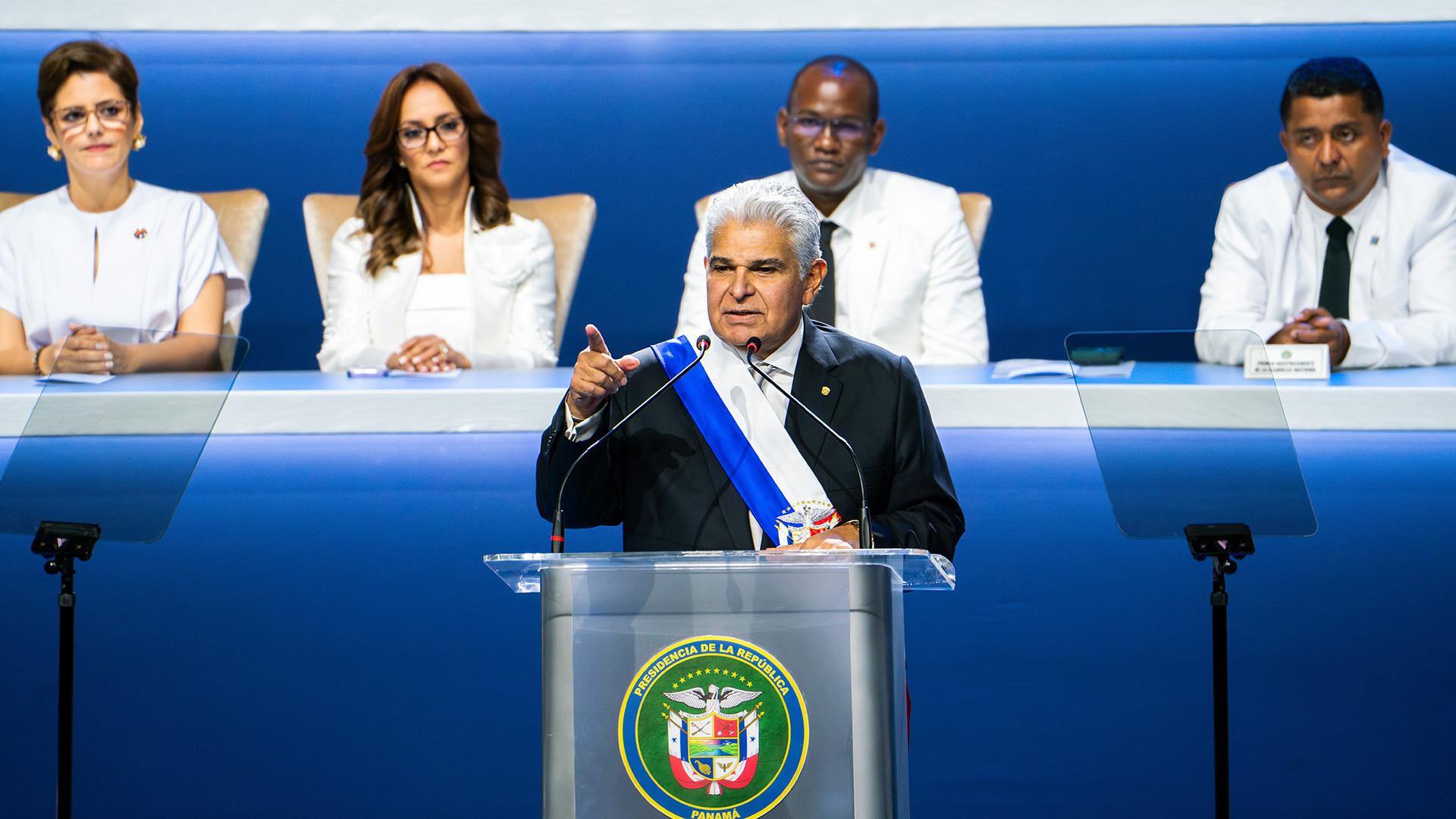Panama’s new president labels Panama Papers a ‘hoax’ as experts voice concerns about money laundering acquittals

Legal experts say the acquittal of 28 defendants facing Panama Papers-related money laundering charges raises questions about the progress of anti-corruption efforts in Panama and beyond, as the country’s new president welcomed the outcome of the trial and called the original journalistic investigation a “hoax.”
In a statement released on Friday, Panama’s judicial branch said the judge Baloisa Marquínez did not find enough evidence to reach a guilty judgment and dismissed a host of electronic evidence presented by prosecutors for not meeting chain-of-custody protocols and authentication standards.
Carlos Barsallo, a Panamanian attorney and former president of Transparency International’s Panama chapter, said the decision reflected a blunder by prosecutors since many of those documents were obtained by authorities during an inspection of the offices of Mossack Fonseca, the Panamanian law firm at the center of the Panama Papers leak. Digital documents, like emails, should have made it easy to maintain the chain of custody, Barsallo said.
“From a global perspective, it shows the difficulty of these cases and the necessity for the prosecution to have more resources — not just economic, but also human resources and technical know-how,” Barsallo said.
U.S. federal judge Mark Wolf, who also chairs the advocacy group Integrity Initiatives International, said the case reinforces the argument for the establishment of an international anti-corruption court, which could prosecute corruption cases that governments can’t or won’t, whether due to lack of resources or conflicts of interest.
“Based on what I’ve read in media reports, there is reason to be concerned that Panama is not able to prosecute major corruption cases properly,” Wolf said. “Because it is unwilling to do that, or unable to do that.”
The 85-hour-long trial sought to hold dozens of defendants — including the founders of Mossack Fonseca and other former employees of the law firm — accountable for creating shell companies later linked to money laundering and corruption scandals in Germany and Brazil. The trial began in April, nearly eight years after the first revelations from the Panama Papers were published in 2016.
That investigation, based on a trove of 11.5 million files leaked to German newspaper Süddeutsche Zeitung and shared with ICIJ, exposed the offshore financial secrets of world leaders and other powerful public figures, triggering protests, government probes and the resignation of Iceland’s prime minister. The revelations prompted lawsuits and regulatory reforms in Panama and beyond, and directly led to governments recuperating over $1.36 billion in back taxes and penalties.
But the crimes at the heart of the case tried in Panama aren’t related to tax evasion, Barsallo explained. Instead, the defendants were accused of setting up shell companies to facilitate money laundering and cover up embezzlement and misappropriation.
The prosecution argued that companies set up by Mossack Fonseca employees were used to acquire properties in Panama with funds from the so-called “car wash” corruption scheme in Brazil, dubbed “Lava Jato” in Portuguese. The trial also covered Mossack Fonseca’s alleged role in a bribery scandal involving German company Siemens, and companies used in connection to a large fraud scheme in Argentina.
However, in Panama, misappropriation isn’t one of the 36 crimes covered by money laundering laws, Barsallo said. And, in the Siemens case, the wrongdoings weren’t publicly known when the firm provided its services to clients later linked to the scandal, Barsallo said.
“No reasonable person could have known that these people would be condemned for these crimes in their country of origin,” Barsallo said. “So the judge said [Mossack Fonseca] had done their due diligence.”
The judgment can be appealed and may go to a tribunal, Barsallo said, which could mean the case eventually reaches Panama’s Supreme Court — a process that could take another year. Judges at each point in the process may overturn Judge Marquínez’s ruling.
But, outside the judiciary, Panamanian officials are hoping to move on from the scandal.
On Monday, Panama’s newly elected president, José Raúl Mulino, welcomed the acquittal in his inauguration speech, labeling the Panama Papers “an international hoax to undermine the image and competitiveness of our country.”
“I am going to make sure Panama is respected and recover our good name that has been arbitrarily tarnished by countries that would never apply in their territories the laws that they demand of us,” Mulino said.
Economist Joseph Stiglitz, who spearheaded a transparency report with anti-corruption expert Mark Pieth shortly after the Panama Papers came out, reaffirmed that the Panama Papers were “instrumental in putting the problem of tax avoidance and money laundering in the consciousness of people everywhere.”
“Tax avoidance deprives revenues necessary to provide people of essential services,” he said in a statement. “The excellent groundbreaking reporting of the ICIJ brought this home.”
But Barsallo added that it’s important for the world to understand this is only one judgment and the case is not a referendum on the Panama Papers as a whole nor on the law firm at the center of it.
“This case, which the world sees as about the Panama Papers and as about one of the biggest leaks in history, is really about two cases that originate in Germany and in Argentina,” Barsallo said. “This case is about two cases, where it was alleged that the firm helped those who committed crimes in those two countries to launder the money involved in those crimes.”